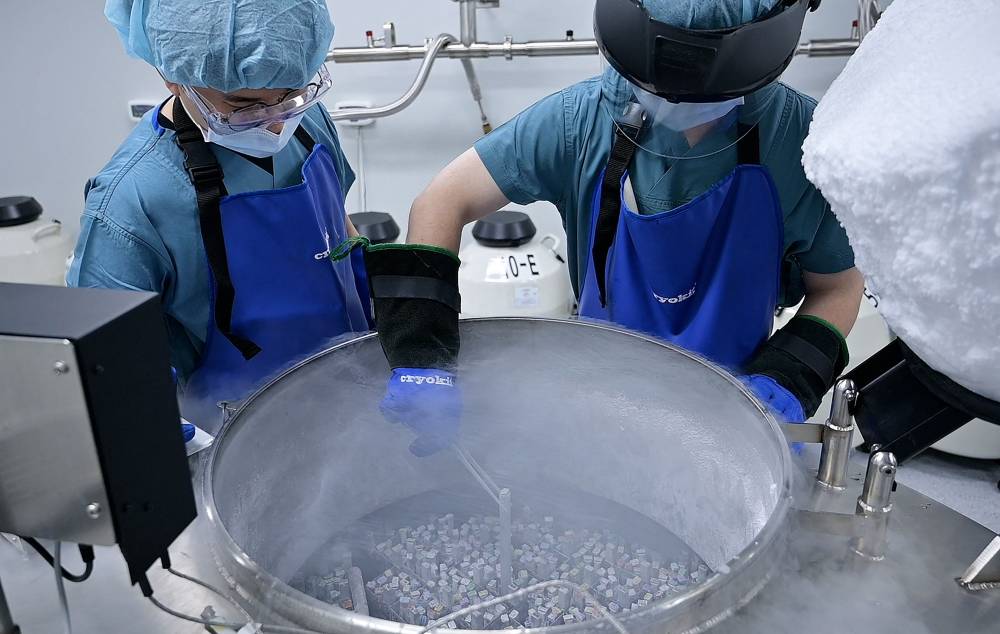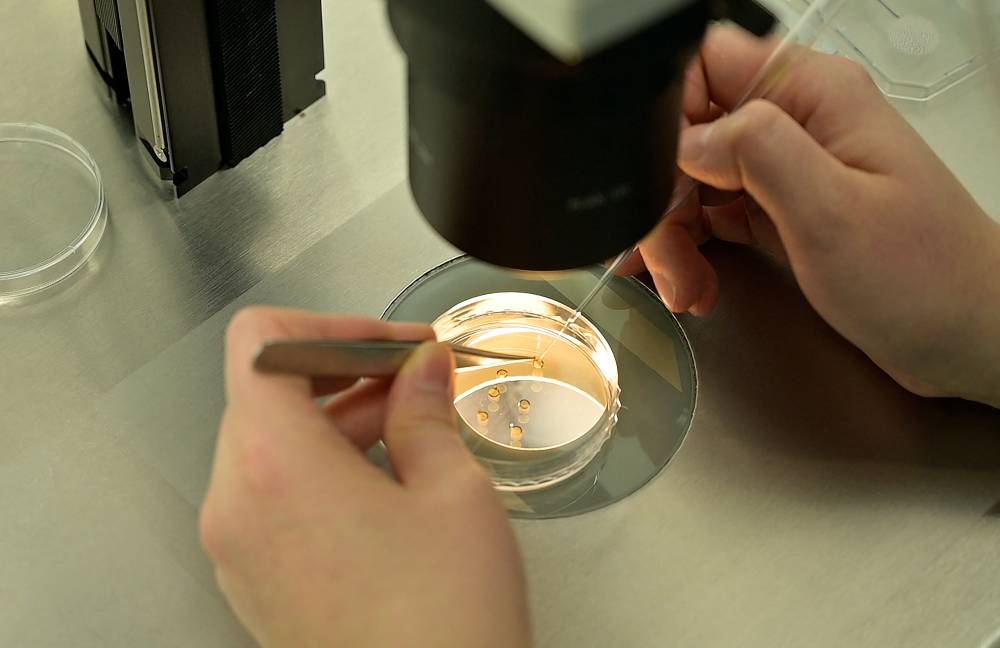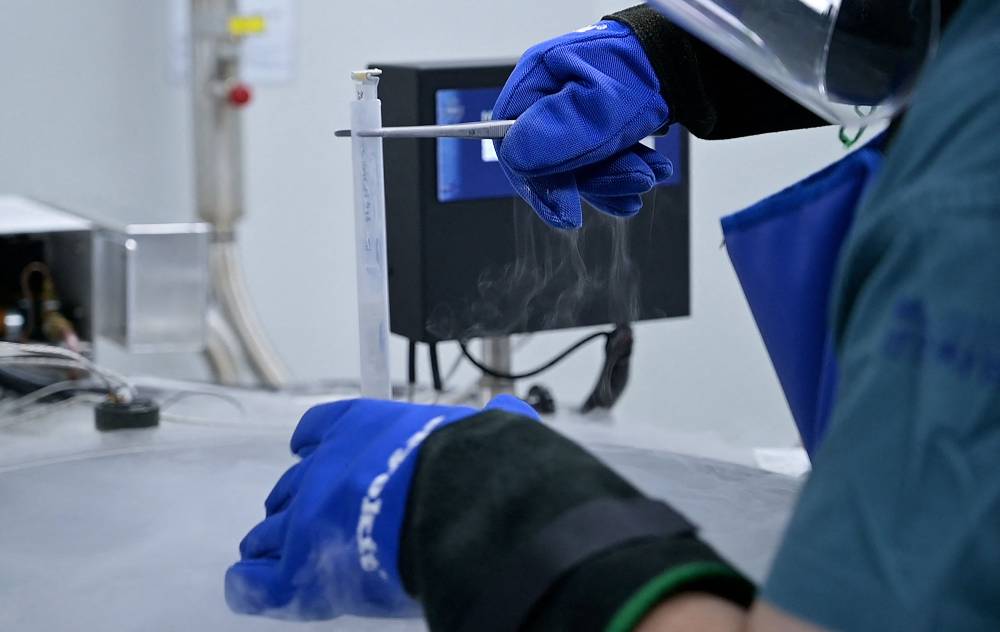Seoul hopes egg freezing can help South Korea baby crisis

SEOUL—As South Korea’s birth rate hits fresh lows, Seoul city officials have a plan to help—subsidized egg freezing. But experts warn the initiative is unlikely to reverse precipitous demographic decline.
At just 0.7 births per woman late last year, South Korea has one of the lowest birthrates in the world, far below the replacement rate, meaning the population is aging—and shrinking—rapidly.
The government has poured billions of dollars into trying to encourage more births, with one of the latest efforts involving Seoul city authorities offering to subsidize the cost of a round of egg freezing.
Jeong, who is in her 40s, decided to take them up.
“I felt the pressure to have a baby because of my age, which led me to consider getting married quickly,” Jeong, who asked to be identified only by her surname, told AFP.
“When I reached my mid-30s, I suggested to the men I dated that we should get married as soon as possible. But it just didn’t work out,” Jeong added. So she turned to a backup plan.
While single women can freeze their eggs, in reality the scheme will only assist women who go on to marry, as clinics offering intrauterine insemination (IUI) and in vitro fertilization (IVF) typically require marriage certificates, making the procedures virtually impossible for singles or same sex couples to access.

Egg freezing theoretically allows women to preserve their fertility, although it is seen as being more likely to succeed if women undergo the procedure before egg quality starts to sharply decline, typically from age 38 onwards.
Having frozen her eggs, Jeong said she no longer felt “as anxious” about being single and missing out on having a baby—and was ready to wait until she found the right person.
“Now that I have my frozen eggs as insurance, I can take my time,” she told AFP.
Helping Korean women to freeze their eggs was determined by Seoul city authorities to be “the most practical solution” for “investing in future childbirth possibilities,” the municipal government said.
“As the age of marriage and pregnancy continues to rise, and women’s participation in society becomes more prominent, there is a growing interest among unmarried women who aspire to conceive and give birth in the future,” it added.
Beyond fertility
The technology to freeze eggs has been available in South Korea since the late 1990s, but there was little awareness and minimal demand for the procedure.

Cha Kwang-yul, who runs the CHA Medical Group, developed one of the world’s first vitrified egg-freeze preservation methods in 1998, and has run an egg bank since 1999.
But only women with cancer, who might lose fertility through medical treatments, were interested in the procedure, he said.
“It’s only been a few years since the culture … changed and people (started) saying: ‘Hey, if you don’t (plan on getting) married, store your eggs well.’”
Cha’s research has focused on the potential of eggs for stem cell technology, which he said could offer help for many medical concerns such as organ transplants—not just fertility issues.
But in recent years, as more information on the procedure’s potential to help extend female fertility has moved into the mainstream, he has seen growing demand for the procedure.
The number of egg freezing procedures carried out at the CHA Medical Center has risen exponentially in just a few years, from 72 in 2015 to more than 1,000 in 2022.
‘N-po’ generation
But efforts to fix South Korea’s demographic crisis that focus on encouraging people to get married and have babies are not recognizing major social shifts, experts say.

Young South Koreans have embraced the term “N-po” generation to refer to the decision to abandon aspirations for marriage, parenthood and home ownership due to stagnant economic growth and intense competition for scarce jobs.
Just 3.7 per 1,000 people got married in 2022, according to official data, a record low.
Single-person households now account for 41 percent of all households in South Korea, official figures show—with that figure set to grow in coming decades.
AFP is one of the world's three major news agencies, and the only European one. Its mission is to provide rapid, comprehensive, impartial and verified coverage of the news and issues that shape our daily lives.




















